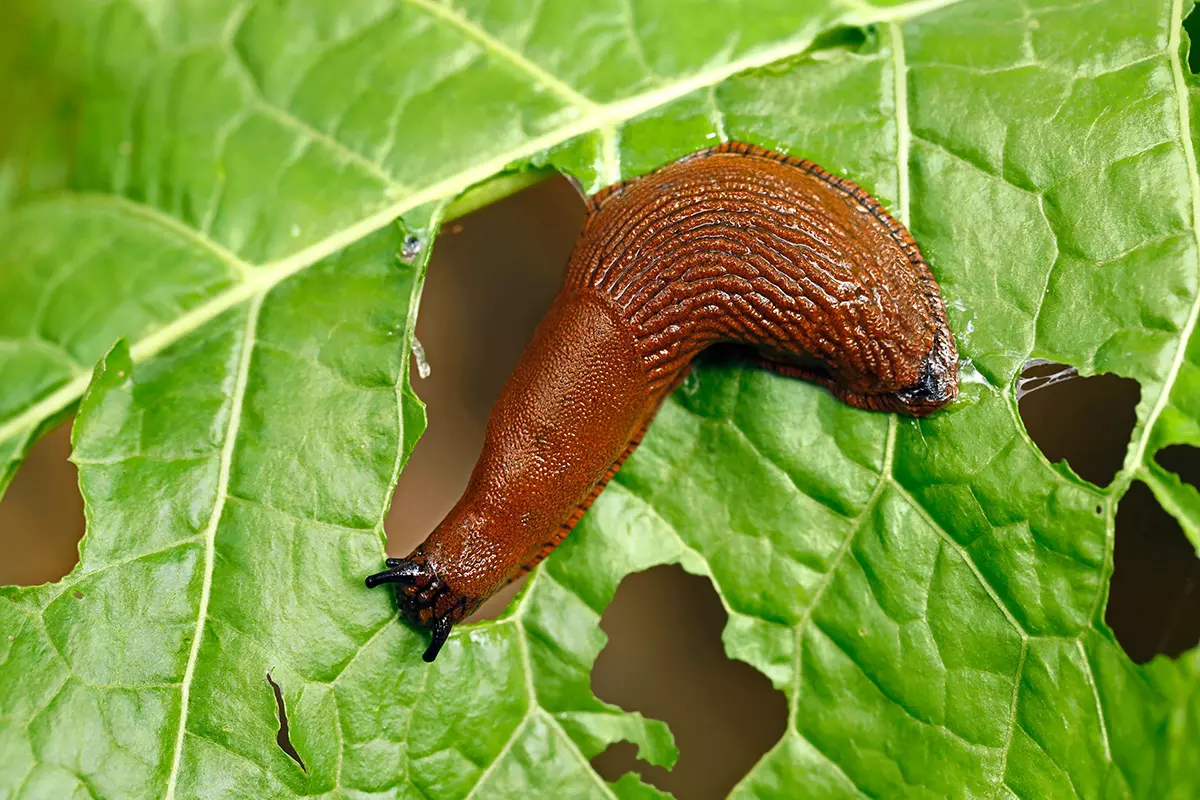PP2. Did you know that when a SLUG visits your house it means that you have...
Most people react to slugs with a frown or a quick flick of the garden glove. Slimy and slow, they’re rarely seen as anything more than a nuisance. But what if that tiny, glistening creature you avoid on rainy mornings was actually playing an essential role in our environment, our science labs, and even our skincare routines?
Yes—it’s time to give slugs a second look. They’re not just pests. They’re recyclers, food sources, healers, and research assistants. Let’s dive into the fascinating, often-overlooked world of slugs and discover why they deserve more respect than they get.
Slugs: Nature’s Cleanup Crew Working Behind the Scenes

In the wild, slugs are unsung environmental heroes. They play a vital role in decomposing organic matter, feeding on fallen leaves, dead plants, and even fungi. By breaking these materials down, slugs help return nutrients back to the soil—nourishing plants and enriching ecosystems.
Think of them as tiny compost machines, constantly at work to keep gardens and forests clean and fertile. Without them, plant waste would pile up, slowing the cycle of growth and decay that sustains healthy soil.
What slugs lack in speed, they make up for in ecological value.
A Key Player in the Food Chain You Didn’t Know About

While slugs might not be your garden’s best friend, they’re a lifeline for many animals. Frogs, birds, beetles, hedgehogs, and toads all depend on slugs for survival. In return, these predators help control other pests and maintain a healthy ecological balance.
If slugs disappeared, it wouldn't just be bad news for gardeners—it would destabilize the entire food web. From forest floors to suburban backyards, the ripple effect would impact species large and small.
Every creature has a purpose—and the humble slug is no exception.
Slug Slime: From Garden Trail to Scientific Breakthrough

This may surprise you: the slimy trail left behind by a slug could hold the key to medical and skincare innovation.
Slug mucus contains powerful bioactive compounds with antibacterial, anti-inflammatory, and regenerative properties. Researchers are now studying slug slime for its potential use in:
-
Wound healing
-
Reducing inflammation
-
Accelerating tissue repair
-
Post-surgery treatment
In the world of skincare, slug slime is being compared to snail mucin—a trendy ingredient used in moisturizers and serums for its hydrating and anti-aging benefits. Rich in natural enzymes, antioxidants, and hyaluronic acid, slug mucus is being eyed by beauty brands looking to harness its natural skin-repairing abilities.
Yes, the stuff you once cringed at may soon help hydrate your skin and fade scars.
Slugs and the Human Brain: An Unlikely Connection
Beyond the garden and the beauty aisle, slugs are also helping neuroscientists unlock the secrets of the brain.
Thanks to their simple nervous systems, slugs (and especially sea slugs) have become popular model organisms in brain research. Scientists have used them to study:
-
Memory formation
-
Neural plasticity
-
Learning behaviors
-
Degenerative conditions like Alzheimer’s disease
By tracking how slugs respond to stimuli and process memory, researchers have gained important insights into how human brains function and adapt. Their role in neuroscience may be small in size—but huge in impact.
The Bigger Picture: Why We Need to Rethink Slugs
Slugs may never be popular—but they are profoundly important. Their contributions span far beyond what we see at first glance.
To recap, slugs:
-
Enrich soil by recycling dead organic matter
-
Feed countless species, helping sustain biodiversity
-
Provide useful biological compounds with medical potential
-
Support brain research and human health advancements
They might be quiet. They might be sticky. But slugs are essential.
Final Thoughts: Beauty Lies Beneath the Slime
The next time you see a slug, consider what it’s doing. Maybe it’s fertilizing your garden, feeding a hungry bird, or one day contributing to a medical breakthrough.
Sometimes the most overlooked creatures are the ones holding everything together.
So before you reach for the salt shaker or brush them off your walkway, remember: that little slug is working hard for you, for the earth, and maybe even for your skin.
Sources:
-
National Wildlife Federation: Why Slugs Matter
-
Scientific American: How Sea Slugs Taught Us About Memory
-
Journal of Cosmetic Science: Slug Mucus and Skincare Potential
Related articles
The Latest
SS4. 10 PHOTOS THAT PROVE YOU HAVE A D*RTY MIND
We’ve all been there: seeing something that, at first glance, seems perfectly innocent, only to realize moments later that our minds have taken it in a different direction. It’s not always intentional — sometimes, our brains just work in mysterious ...
SS2. 10 PHOTOS THAT PROVE YOU HAVE A D*RTY MIND
We’ve all been there: seeing something that, at first glance, seems perfectly innocent, only to realize moments later that our minds have taken it in a different direction. It’s not always intentional — sometimes, our brains just work in mysterious ...
SS1. 10 PHOTOS THAT PROVE YOU HAVE A D*RTY MIND
We’ve all been there: seeing something that, at first glance, seems perfectly innocent, only to realize moments later that our minds have taken it in a different direction. It’s not always intentional — sometimes, our brains just work in mysterious ...
PP4. What It Means If You're Farting Over 25 Times Daily
Why You're Farting More Than 25 Times a Day—and What You Can Do About It Passing gas is a natural part of digestion, but when it happens more than 25 times a day, it can feel excessive, uncomfortable, and even embarrassing. ...
PP2. What It Means If You're Farting Over 25 Times Daily
Why You're Farting More Than 25 Times a Day—and What You Can Do About It Passing gas is a natural part of digestion, but when it happens more than 25 times a day, it can feel excessive, uncomfortable, and even embarrassing. ...
 PP2. Alex Rodriguez Shares Rare Photo of His Teen Daughter — Fans Notice Striking Resemblance to Jennifer Lopez
PP2. Alex Rodriguez Shares Rare Photo of His Teen Daughter — Fans Notice Striking Resemblance to Jennifer Lopez P1. Pregnant woman relentlessly harassed by a police dog
P1. Pregnant woman relentlessly harassed by a police dog P1. What Does It Mean When a Man Scratches a Woman’s Palm?
P1. What Does It Mean When a Man Scratches a Woman’s Palm? PP1. Grandma reveals what she looked like before full body tattoos
PP1. Grandma reveals what she looked like before full body tattoos-1754207181-q80.webp)
-1754207147-q80.webp)
-1754207122-q80.webp)




-1750412547-q80.webp)


